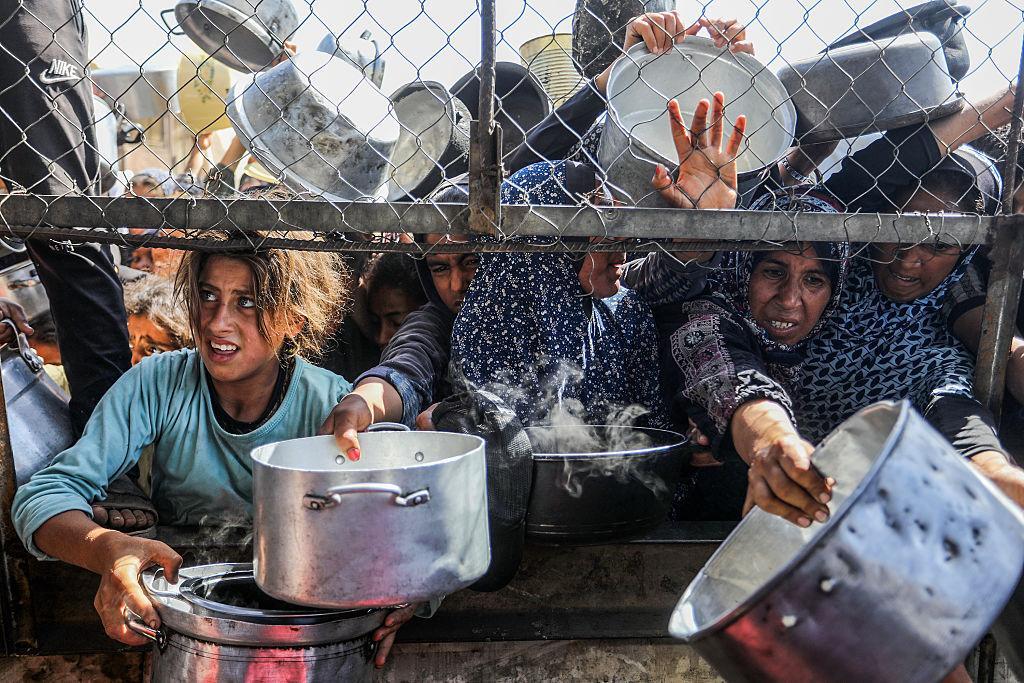
Eid in Gaza: Prayer Amid Ruins, Hunger, and Growing Humanitarian Crisis
On June 6, 2025, Palestinians in Gaza gathered for Eid al-Adha prayers, a celebration of faith and community, amidst the devastation and chaos that has gripped the region. The ongoing conflict has left over 54,000 lives lost, with widespread displacement and destruction of homes, infrastructure, and essential services. The once-thriving city of Gaza is now a scene of utter devastation, with residents struggling to come to terms with the magnitude of their losses.
As the sun rose over the ruins, Palestinians gathered in open spaces, makeshift tents, and even streets to perform their Eid prayers. The destruction of mosques, a sacred space for worship, has left many without a traditional place to pray. Despite the adversity, the community came together to celebrate their faith, drawing strength and comfort from their collective resilience.
However, amidst the prayers and celebrations, the harsh realities of the humanitarian crisis in Gaza could not be ignored. The ongoing blockade and violence have exacerbated a pre-existing food crisis, leaving nearly 500,000 people at risk of famine. The United Nations has warned of an impending catastrophe, as the situation continues to deteriorate.
Aid Distribution Remains a Challenge
The distribution of aid has become increasingly challenging, with the Israeli military and security forces restricting access to certain areas. The blockade has made it difficult to deliver vital supplies, including food, medicine, and shelter materials. The situation is further complicated by the lack of functional roads, damaged infrastructure, and the constant threat of violence.
“It’s like they’re trying to punish us for being human,” said Amira, a mother of three who has been displaced multiple times. “We’re not asking for much, just a chance to live, to have food on the table, and to feel safe. But it seems like that’s too much to ask.”
Food Scarcity Worsens
The food situation in Gaza has become desperate, with many families struggling to access basic necessities. The UN estimates that over 70% of the population relies on international aid to survive, and the situation is expected to worsen in the coming months. The blockade has made it difficult to import food and other essential supplies, leading to a critical shortage of staple items like wheat, rice, and lentils.
The humanitarian crisis is further exacerbated by the lack of access to clean water and sanitation facilities. The water supply is contaminated, and the sewage system is overwhelmed, posing a significant risk to public health.
Growing Tensions and Violence
Tensions in Gaza have been escalating in recent weeks, with daily clashes between Israeli security forces and Palestinian protesters. The situation has become increasingly volatile, with reports of civilian casualties, including children and women.
The Israeli military has been accused of using excessive force, with many calling for an immediate end to the violence. The international community has condemned the attacks, with the UN calling for an investigation into the allegations.
A Way Forward
As Eid al-Adha came to a close, Palestinians in Gaza were left to ponder the future. The crisis in Gaza is a stark reminder of the devastating consequences of conflict and the importance of finding a peaceful solution to the ongoing conflict.
The international community must take immediate action to address the humanitarian crisis in Gaza. This includes increasing aid distribution, lifting the blockade, and providing support for the reconstruction of damaged infrastructure and homes.
The people of Gaza are not asking for much, just a chance to live in dignity, to have access to basic necessities, and to feel safe. As the world observes Eid al-Adha, we must remember the struggles and resilience of the Palestinian people and work towards a future of peace and prosperity for all.
Source:
https://thecsrjournal.in/eid-al-adha-in-gaza-faith-endures-amid-devastation-and-food-shortages/



